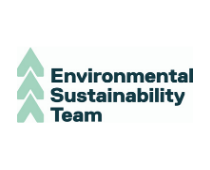Guest post by Richard Fitton, Applied Buildings and Energy Research Group
With the new year coming the team have made it their new year’s resolution to start trying to ascend the Green Impact league. As a unit that prides itself on cutting edge energy research, we feel that it is a natural step for us to make progress towards a more sustainable campus.
With the eager assistance of our Student Advisor Moshe Kinn, we have already implemented a wide range of the criteria from the Green Impact scheme. It was very positive to see that some of these only took a formalisation of what practices were already in existence, such as light switching procedures, and the management of areas of IT equipment.
One of the first steps that we took was arranging recycling bins for the facility which allow us to recycle waste paper, cans and bottles etc. These are already filling up nicely with waste that would have been otherwise sent landfill.
The next major step that we have taken is to ensure that the facilities AC systems are running to a program that is consistent with our occupancy; this has helped us find one system that was apparently overrunning and wasting energy.
Going forward, the bronze and silver category headings have been sub divided and allocated to each team member. We aim to meet once every two weeks for updates and dissemination of work.
We also aim to publicise through the green impact network some of our ground breaking research. Here is a piece of research ha we have recently carried out as a taster:
New research carried out for the BEAMA controls group, TACMA, shows that the installation of effective temperature controls on home heating systems has a far more significant effect on minimising energy use than previously predicted.
Tests in a typical UK house, built within an environmental chamber, show that energy consumption by the heating systems can be reduced by up to 40% through the installation of a room thermostat and TRVs, with installation costs recovered in around a year.
http://www.beama.org.uk/en/news/index.cfm/tacma-research
